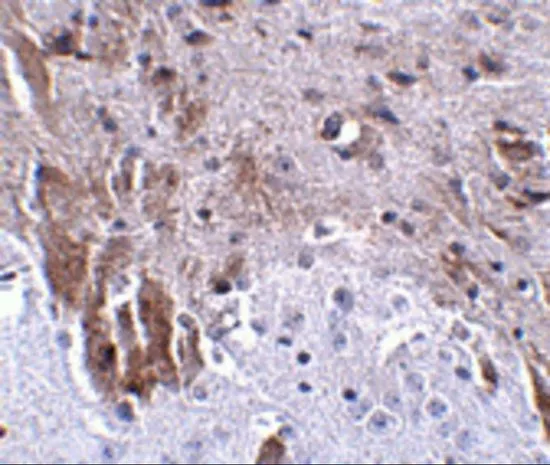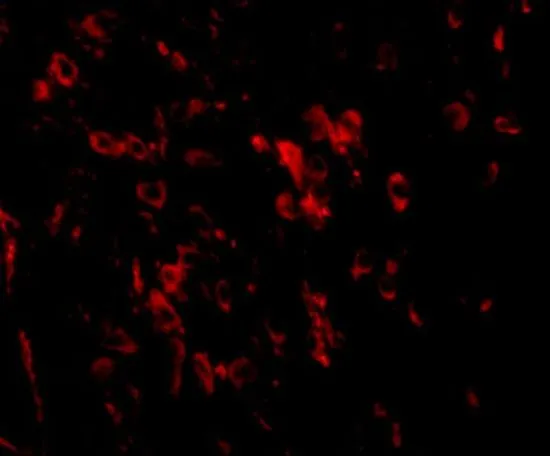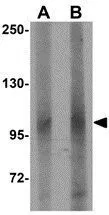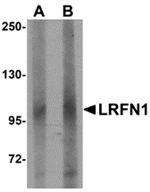
IHC-P analysis of mouse brain tissue using GTX85345 LRFN1 antibody. Working concentration : 2.5 microg/ml
LRFN1 antibody
GTX85345
ApplicationsWestern Blot, ELISA, ImmunoHistoChemistry, ImmunoHistoChemistry Paraffin
Product group Antibodies
ReactivityHuman, Mouse, Rat
TargetLRFN1
Overview
- SupplierGeneTex
- Product NameLRFN1 antibody
- Delivery Days Customer9
- Application Supplier NoteWB: 1 - 2 microg/mL. IHC-P: 2.5 microg/mL. *Optimal dilutions/concentrations should be determined by the researcher.Not tested in other applications.
- ApplicationsWestern Blot, ELISA, ImmunoHistoChemistry, ImmunoHistoChemistry Paraffin
- CertificationResearch Use Only
- ClonalityPolyclonal
- Concentration1 mg/ml
- ConjugateUnconjugated
- Gene ID57622
- Target nameLRFN1
- Target descriptionleucine rich repeat and fibronectin type III domain containing 1
- Target synonymsSALM2, leucine-rich repeat and fibronectin type III domain-containing protein 1, CTC-246B18.8, synaptic adhesion-like molecule 2
- HostRabbit
- IsotypeIgG
- Protein IDQ9P244
- Protein NameLeucine-rich repeat and fibronectin type III domain-containing protein 1
- Scientific DescriptionLRFN1 is one of a family of five transmembrane glycoproteins that are highly expressed in neuronal tissues. LRFN proteins share leucine-rich repeat (LRR)-immunoglobulin-like (Ig)-fibronectin type III (Fn)-transmembrane domain structure with other members of the LRR-Ig-Fn protein superfamily such as the Slitrk family of proteins. Expression of LRFN1, -3, and -4 mRNA was detected in embryonic neuronal cells, while Lrfn2 and Lrfn5 expression was primarily restricted to more mature cells. LRFN1, -2, and -4 bound to PDZ domains of postsynaptic PSD95, re-distributing PSD95 to the cell periphery. It has been suggested that the Lrfn proteins play a role in the developing and/or mature vertebrate nervous system. At least two isoforms of LRFN1 are known to exist. This antibody is predicted to not cross-react with other members of the LRFN family.
- ReactivityHuman, Mouse, Rat
- Storage Instruction-20°C or -80°C,2°C to 8°C
- UNSPSC12352203






